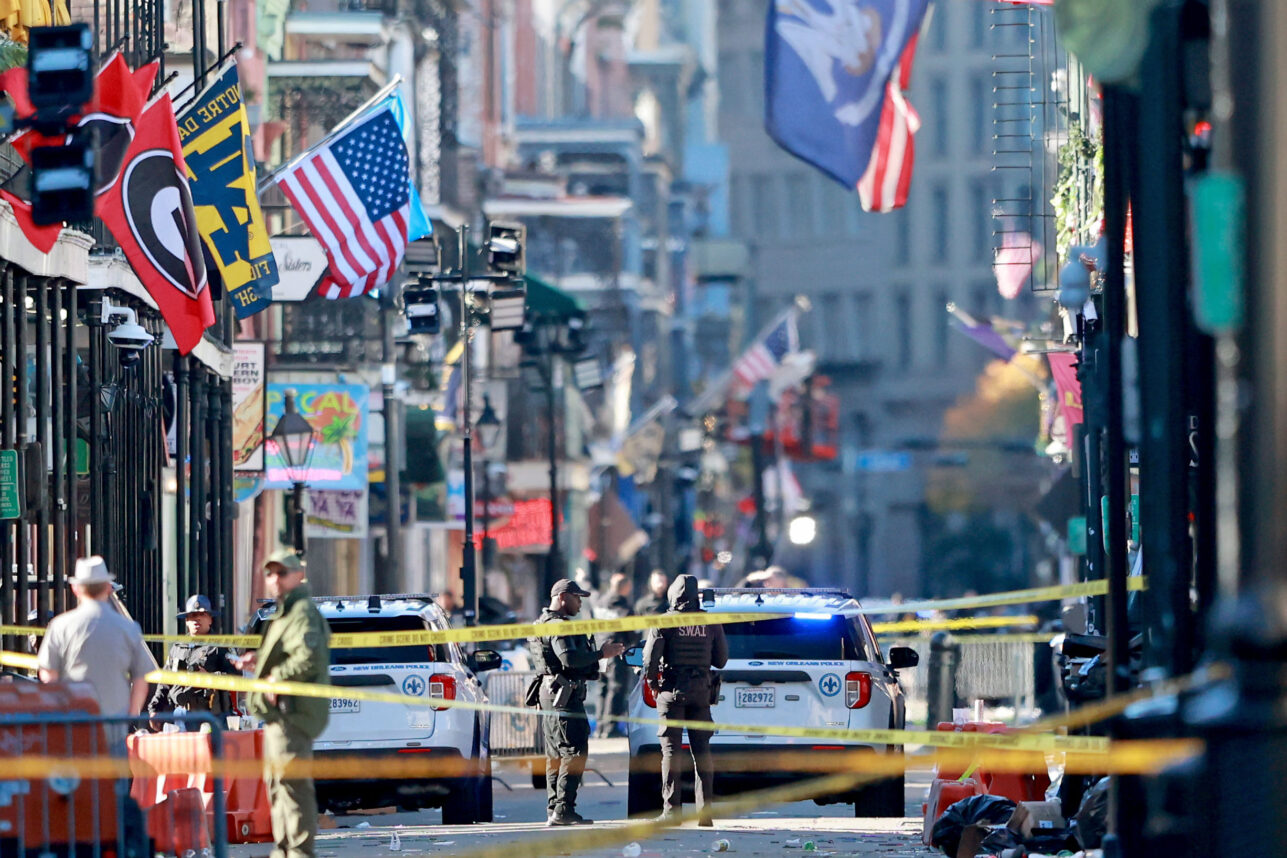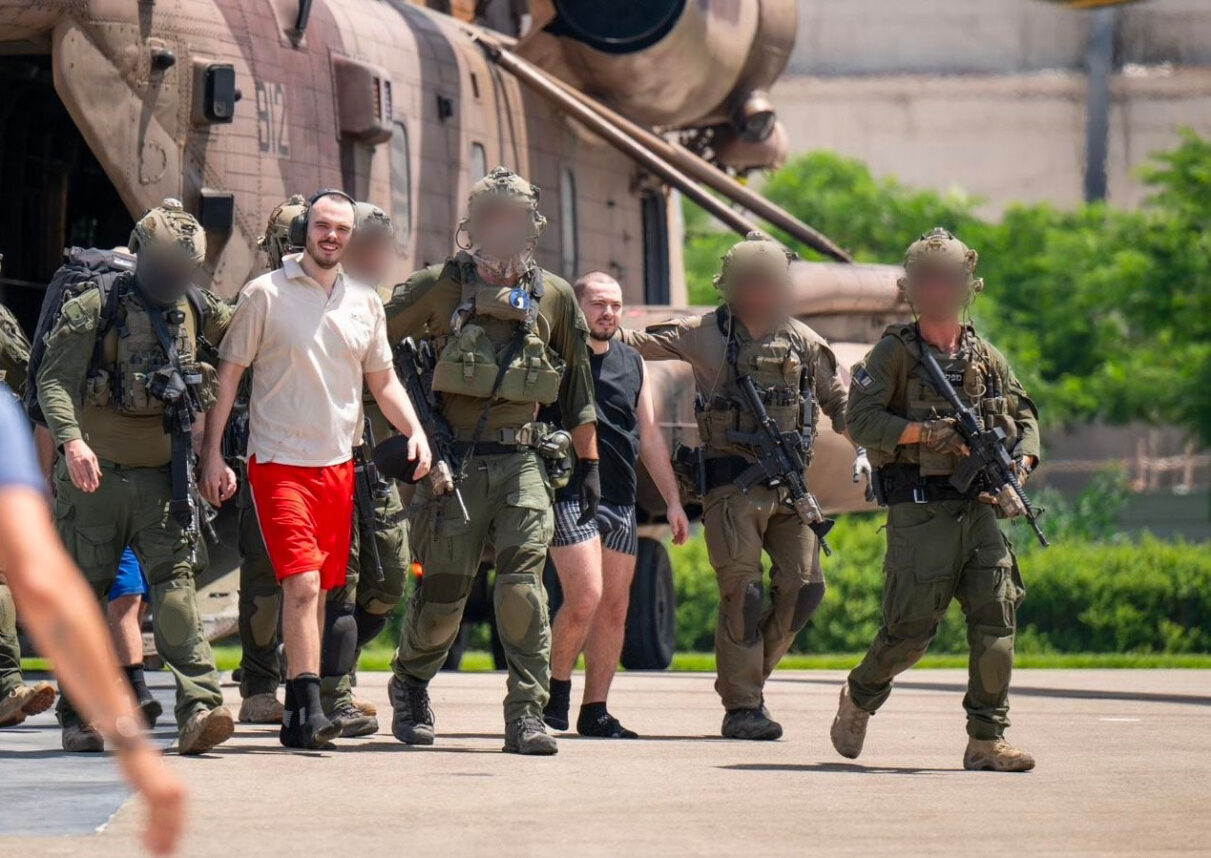
One year after Israel’s lightning victory in the Six-Day War, David Ben-Gurion was asked what he now thought of the country whose independence he had declared in 1948 and which he served as its first prime minister.
“We are not a state yet,” he replied. “We are only at the beginning.”
His somewhat cryptic response is but a blip in six hours of interviews, compressed into the 70-minute film “Ben-Gurion, Epilogue.” The documentary — an eye-opener, even to those who knew Ben-Gurion — will be screened Nov. 5 at the opening gala for the 31st Israel Film Festival at the Saban Theatre in Beverly Hills.
The film — derived from a recently rediscovered, six-hour interview conducted in 1968 — reveals the deeply introspective man behind the legend, who died in 1973 and who was given to politically incorrect statements, which often startled friend and foe alike.
One would hardly label as “peacenik” a man who led his 1-day-old nation into battle facing five Arab nations in 1948. In doing so, he defied every foreign military expert who predicted the poorly equipped, untested Israelis would be wiped out by their heavily armed foes in a matter of weeks, if not days.
Yet later, with Israel’s jubilation over its miraculous 1967 victory still ringing in his ears, Ben-Gurion somberly counseled his countrymen that if the choice were between peace and retaining all the conquered territories, he would choose peace. He amended his position later, saying Israel should retain all of Jerusalem and the Golan Heights.
For a man often described as brusque and at times labeled a dictator by his political foes, the aging Ben-Gurion of “Ben-Gurion, Epilogue” comes across as a modest individual, although eager to continue the filmed interview.
Among his memorable observations:
- Alone I couldn’t have done anything. Once, when I spoke to Albert Einstein, he said that even his famous Theory of Relativity depended on experiments conducted by other scientists.
- Big cities are not good for humanity. Why does everybody want to go to Tel Aviv? We should have a large number of small towns, each with no more than 15,000 residents.
- I am a Jew, not just an Israeli. … I am not a Zionist, I am not a socialist. I am a Jew who lives in Israel, who wants to live in peace with the rest of the world and for people to honor each other and not exploit each other.
- Turning to God is thinking deeply about something.
- On the day Israel declared its independence, everybody celebrated, but my heart was heavy.
- You can’t be afraid of making mistakes. You do something because you think it’s right.
- Is there a danger of the military taking over the government? No, not in our state.
- Can Israel survive as a democracy? I hope so.
The six hours of interviews — the longest in Ben-Gurion’s life — were filmed at Sde Boker, and then the videotapes mysteriously disappeared.
Three years ago, filmmakers Yariv Mozer and Yael Perlov visited the Steven Spielberg Jewish Film Archives in Jerusalem in search of a feature film labeled “42:6” about the life of Ben-Gurion as interpreted by a group of actors. The film came out in 1970 and was quickly forgotten.
Moser and Perlov found “42:6” and next to it noticed some 35mm reels labeled “raw material” containing the videotape from the Sde Boker shoot. The filmmakers’ joy at the discovery turned to dismay when they discovered that the tapes’ soundtracks were missing. Doggedly, Mozer embarked on a six-month global search and finally found the soundtracks — at the Ben-Gurion Archives in Sde Boker.
Mozer, 39, the film’s director and co-producer, wasn’t even born when Ben-Gurion died. “For me, growing up in Israel, Ben-Gurion was no more than a picture on the wall,” he said in an email exchange.
The interview and film offer members of younger generations a chance to discover the person behind the Israeli icon.
“I am not a Zionist, I am not a socialist. I am a Jew who lives in Israel.” – David Ben-Gurion.
“He becomes a human being with emotions and the full complexity of his personality,” Mozer said. “So, almost everything in this film was for me a new discovery. I came to understand that deeply in his vision and ideology was the connection to the higher moral values of the Bible and the prophets.”
Conducting the interview in the film is Clinton Bailey, now 80, who as a young Jew from Buffalo, N.Y., made aliyah to Israel in 1958. He became one of the foremost authorities on the lives and customs of Bedouin tribes living in the Negev and Sinai Peninsula, and met Ben-Gurion through the most unusual of circumstances.
Shortly after his arrival in the country, Bailey was walking along Keren Kayemet Street in Tel Aviv, heading for a job interview. He passed a modest house and was hailed by a woman standing outside, who instantly recognized him as an American, since he wore a necktie. Learning that the young man wanted to live in Israel and was looking for a job, she invited the stranger in for a cup of tea. Before her guest left, the woman told him that her husband was out of town but would return the next morning, and she would introduce the two at that time.
The hospitable lady was Paula Ben-Gurion, whose husband was then in his second term as prime minister. The two men hit it off, and when the documentary film project materialized, Ben-Gurion requested that Bailey be the interviewer.
Bailey, in an interview with the Journal, called Ben-Gurion “a visionary who guided his vision by pragmatism. He was totally dedicated to this vision and what had to be done to realize it. He wanted political power to realize the vision, and not for the perks of power. A modest lifestyle, without the frills of power, was sufficient for him. He was a thinking person and an avid reader.”
The description is apt, but if the film has a weakness, it is that it omits the criticisms leveled against Ben-Gurion during his public life. Many of the attacks were political hardball, which Israelis play more enthusiastically than anyone else, but some of the criticism was valid and worth examining.
Toward the end of his interview, the then 82-year-old Ben-Gurion mused about his own mortality.
“I don’t fear death,” he said. “Why should I? It won’t change anything.” Then he added, “At my funeral, I want no eulogies and no gun salutes.”
Five years later, the government carried out his wishes faithfully.






















 More news and opinions than at a Shabbat dinner, right in your inbox.
More news and opinions than at a Shabbat dinner, right in your inbox.